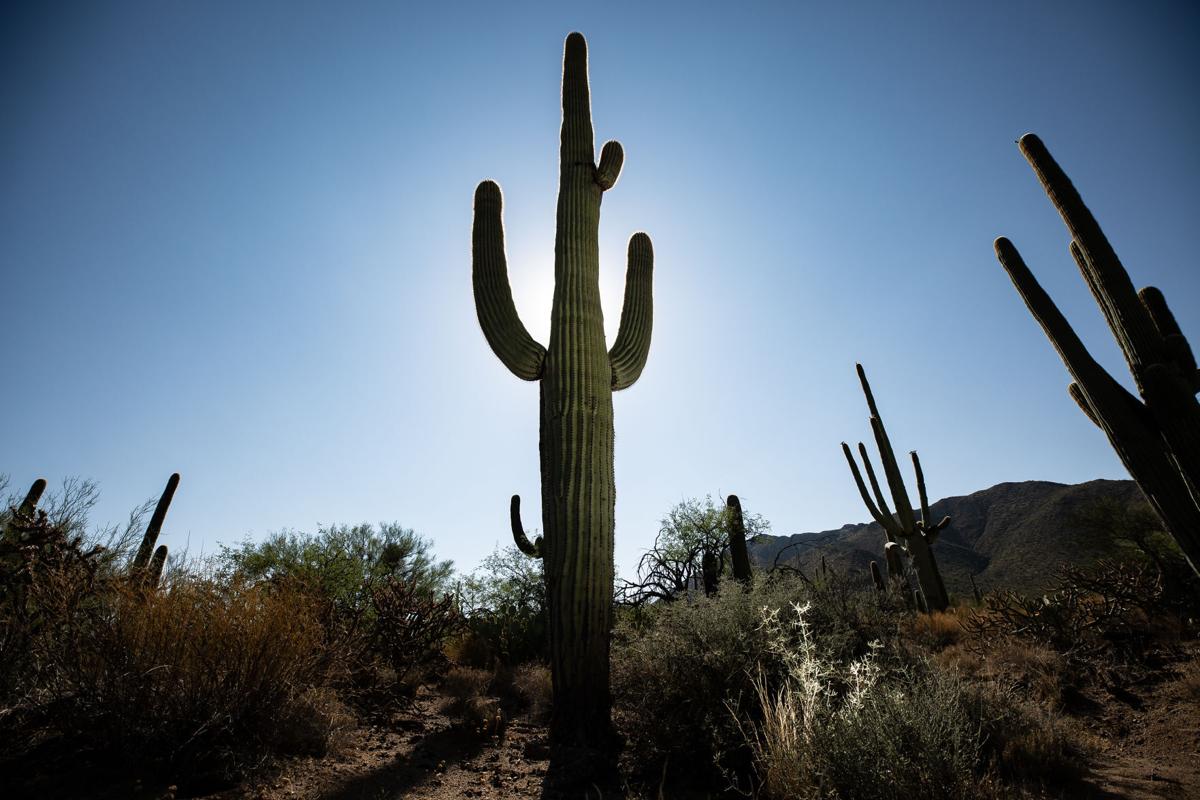Tucson has warmed faster in Novembers since 1970 than any other U.S. city or town studied by Climate Central, the science group reported Monday.
Tucson's average temperature for November is about 6.3 degrees warmer today than it was 53 years ago, Climate Central said. The nonprofit national group examined average November 1970-2023 temperature trends in 192 cities and towns including Tucson.
November 2023 alone was 3.6 degrees warmer overall in Tucson than our average November, the National Weather Service separately reported. It was Tucson's fifth warmest November in weather service records going back to 1895.
Tucson's average November 2023 temperature, averaging highs and lows, was 65.1 degrees.
But the city's average high temperature for last month was 78.2 degrees, with Nov. 5 basking at a record-tying high reading of 94.1.
And the longer-term warming trend carries a lot more significance than just this November's toasty temps.
While many Tucsonans might cheer for a warmer November, a temperature increase on that scale can have negative consequences, said Peter Girard, Climate Central's vice president for communications.
It's also changing growing seasons, which can help or hurt crops, he said. The warmer weather creates a more favorable environment for pests and can extend allergy seasons, he said. Since warmer weather commonly increases evaporation rates of rivers, streams and lakes, that can hurt water supplies for mammals, birds and people, Girard said.
"This indicates that natural cycles are being disrupted by climate change," Girard said. "It means it’s got unintended consequences that are not positive, and trending toward risks to natural systems and the people who depend upon them."
It's not clear why Tucson's November temperatures rose faster than those in other cities, he said. There's nothing about Tucson making it particularly prone to climate change impacts compared to other cities, he said.
"In a given season or month, the (temperature) signal can bump up across any region. But yes, this is consistent with trends we would expect because of global warming," Girard said. "It’s consistent with trends we're seeing in virtually every other corner of the U.S. and around the world."
The group used a two-step process to calculate the average November temperature rise since 1970 for Tucson and the other 191 cities studied. First, it calculated the average November temperature for each year starting in 1970. Then, it multiplied the average yearly rate of warming compared to the normal temperature for that period by the number of years studied — 53 in this case.
Just looking at November of this year, Climate Central identified seven Tucson days in which its climate models found that day's temperature was at least twice as likely to reach as high as it did due to human-caused climate change, he said.
November also continued Tucson's consecutive five-month trend in warming temperatures.
July 2023 was the hottest month recorded in Tucson since records started being kept in 1895. August was the third hottest August on record. September was tied for the hottest September on record and October was the fourth warmest October on record, the Weather Service said.
Overall, fall 2023 from September through November was the second warmest Tucson fall on record. So far, 2023 as a whole is registering its fifth warmest year on record, the Weather Service said. Rainfall this year so far is 8.74 inches, .91 inch less than normal, making 2023 Tucson's 44th driest year on record so far.
Looking ahead, the Weather Service said the next three months have an equal chance of being warmer or colder than normal and of being wetter or drier than normal.
See what today's weather forecast looks like in Tucson.





